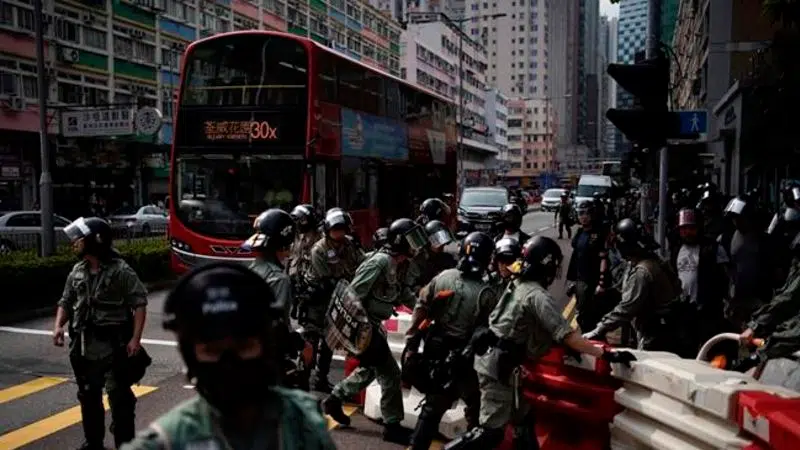
‘Be water’: Police swoop as Hong Kong protests shift tactics
HONG KONG — Tearing a page out of ancient Chinese military philosophy, black-clad protesters in Hong Kong changed tactics and wreaked havoc by popping up in small groups in multiple locations across the city Sunday, pursued by but also often eluding police who made scores of muscular arrests.
The guerrilla-like tactics sought to maximize the disruption and visibility of protests at a time when anti-government demonstrations have, as a whole, been showing signs of flagging as they stretch into a fifth month. Pressure from a government ban on the face masks worn by many protesters and extreme violence earlier this month appear to have cooled the ardour of some demonstrators and whittled down protest numbers.
Online calls for gatherings to start at 2 p.m. in dozens of malls, parks, sports grounds and other locations triggered an afternoon of mayhem and marked a shift from earlier more concentrated rallies in fewer spots.
“We’re going to be more fluid and flexible,” said Amanda Sin, 23, an office worker who joined a peaceful protest outside police headquarters in central Hong Kong. “We are interchanging different tactics.”


